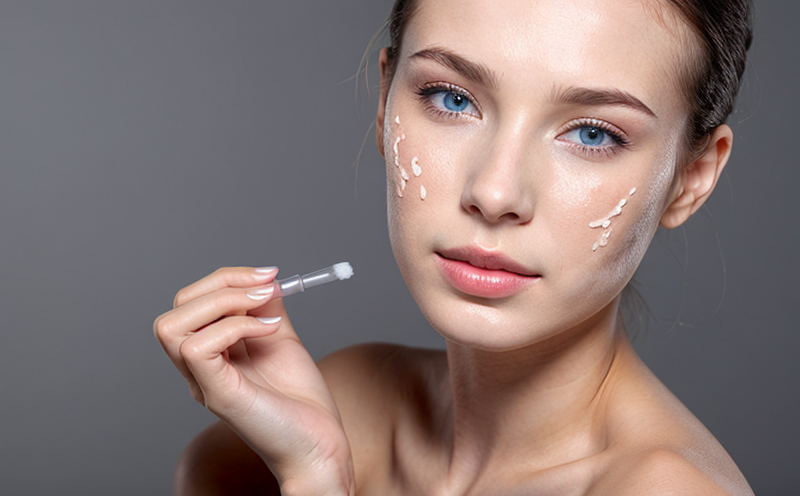Sensitization Testing in Cosmetic Creams and Lotions
The testing of cosmetic creams and lotions for skin sensitization involves evaluating whether a product or its ingredients could potentially cause an adverse reaction when applied to the skin. This is critical for ensuring consumer safety, especially given that cosmetics are used daily by millions of people worldwide. Skin sensitization refers to an immune-mediated inflammatory response in the skin upon repeated contact with certain substances.
In the context of cosmetic creams and lotions, this testing is particularly important because these products often contain a wide range of ingredients that can interact with the skin’s natural barriers or trigger allergic reactions. The European Union Regulation (EC) No 1272/2008, which aligns with international standards like ISO 10993-11, mandates that certain cosmetic products undergo sensitization testing if they contain known allergens or are likely to cause an adverse reaction.
The testing process typically involves exposing human skin cells or animal models to the product for a defined period. The response is then observed and measured according to strict criteria. If sensitization occurs, it indicates that the cosmetic formulation may pose a risk to consumers who have sensitive skin or are prone to allergic reactions.
For quality managers and compliance officers, understanding this testing process is crucial as it helps them ensure their products meet regulatory requirements and protect consumer health. In R&D environments, such tests inform product development, helping to identify safer formulations early in the design phase. For procurement teams, knowing about sensitization testing ensures they source ingredients and raw materials that are less likely to cause adverse skin reactions.
The implications of failing this test can be severe for a company. Not only does it risk regulatory penalties but also potential damage to brand reputation and consumer trust. Therefore, investing in robust testing protocols is essential for any cosmetic manufacturer aiming to stay compliant with international standards while ensuring product safety.
Frequently Asked Questions
- Ensures compliance with regulatory requirements such as EU Regulation (EC) No 1272/2008 and ISO standards.
- Promotes product safety by identifying potential allergens early in the development process.
- Reduces the risk of legal issues associated with non-compliance or adverse reactions.
- It encourages the use of safer, less allergenic ingredients, which can reduce consumer waste and improve overall product safety.
- Promotes the development of more sustainable cosmetic formulations that align with broader environmental health goals.
Benefits
- Ensures compliance with international standards like ISO 10993-11 and EU Regulation (EC) No 1272/2008.
- Promotes product safety by identifying potential allergens early in the development process.
- Reduces the risk of legal issues associated with non-compliance or adverse reactions.
- Enhances consumer trust and satisfaction, leading to increased brand loyalty.
Environmental and Sustainability Contributions
- Promotes the use of safer ingredients that are less allergenic, reducing consumer waste and improving overall product safety.
- Fosters the development of more sustainable cosmetic formulations aligned with broader environmental health goals.
- Simplifies compliance with environmental regulations related to chemical usage in cosmetics.
Competitive Advantage and Market Impact
By ensuring that sensitization testing is a key part of their product development process, cosmetic manufacturers can gain several strategic advantages. Firstly, they demonstrate a strong commitment to consumer safety and regulatory compliance, which can significantly enhance brand reputation and trust among consumers. Secondly, identifying potential allergens early in the development stage allows for timely adjustments, potentially avoiding costly recalls or reformulations later on.
Moreover, companies that invest in robust testing protocols are better positioned to meet evolving market demands. For instance, there is growing consumer interest in natural and organic products, which often have fewer allergens compared to synthetic counterparts. By proactively identifying and addressing sensitization risks, manufacturers can tap into these niche markets more effectively.
Finally, compliance with international standards not only protects against legal penalties but also opens up access to larger markets where stringent regulatory requirements are in place. This can be particularly beneficial for multinational corporations looking to expand their footprint globally. In summary, investing in sensitization testing is a strategic move that enhances product safety, supports sustainable practices, and drives market competitiveness.





